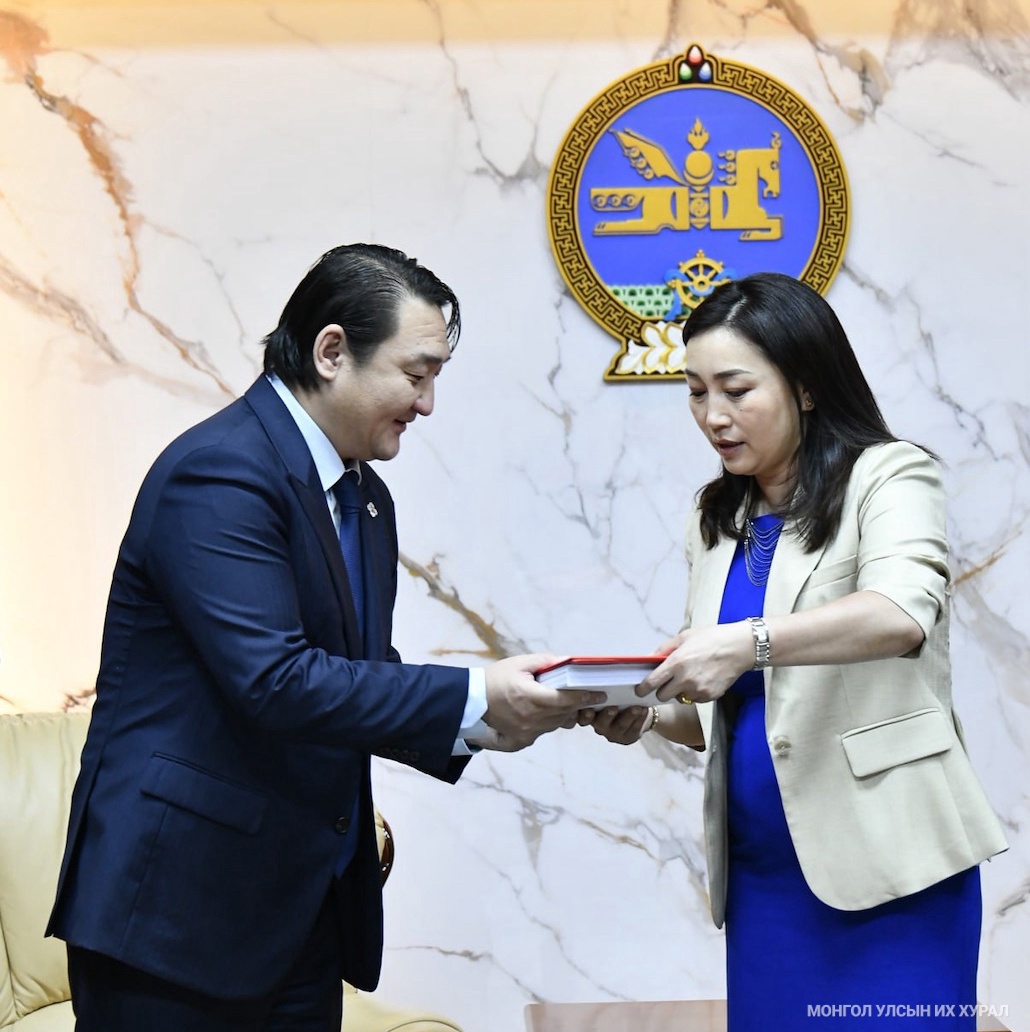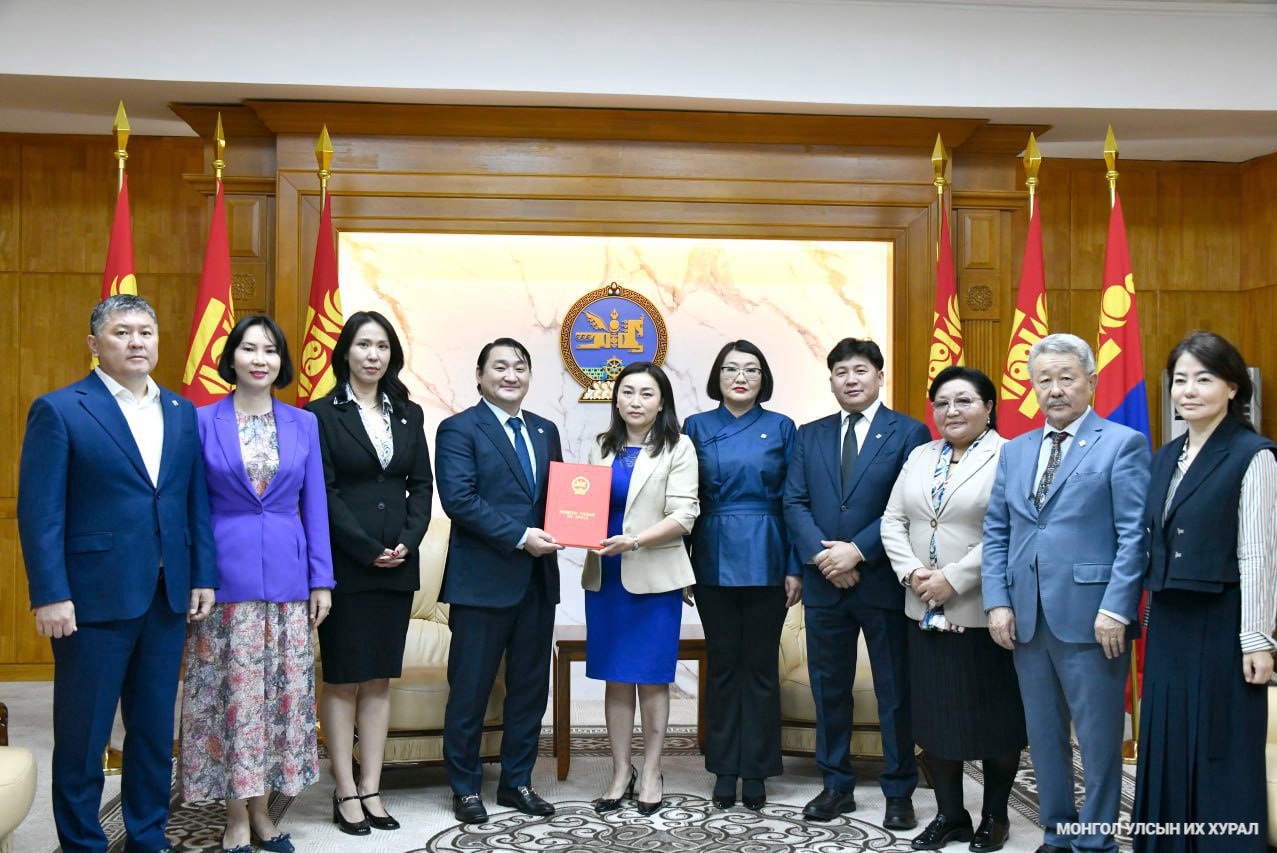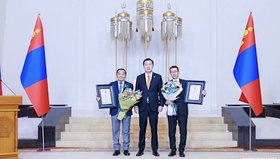Today (July 4, 2025), Members of the State Great Hural of Mongolia — S. Lundeg, S. Zamira, D. Regdel, A. Ariunzaya, U. Otgonbayar, M. Sarnai, N. Batsumberel, and M. Mandkhai — submitted the draft law on amendments to the Law “On Ensuring the Safety of Food Products” to Deputy Chairwoman Kh. Bulgantuya.
The National Security Concept of Mongolia outlines a strategy to improve the control of food packaging, fertilizers, and plant protection products, and to ensure the quality and hygienic safety of food raw materials and products through risk assessment.
The implementation plan for Resolution No. 36 of 2022 of the State Great Hural of Mongolia, titled “On Certain Measures to Ensure Food Supply and Safety,” includes in item 1.1.4 the preparation and submission to the State Great Hural of a draft law on amendments to the Law on Ensuring the Safety of Food Products.
In line with the objectives and goals set forth in the aforementioned legislation, the bill’s initiators have recognized the necessity to improve the legal framework to ensure consumers are supplied with certified food products.
Accordingly, the proposed amendments change the term “food safety” to “food certification” and to maintain coherence between laws, the title of the Law on Ensuring the Safety of Food Products will be changed to the Law on Ensuring Food Certification, with corresponding revisions made to relevant articles and provisions.
Furthermore, to ensure effective implementation of the Law on Ensuring the Safety of Food Products, the amendments introduce improvements to the system of monitoring food certification, provide for professional management, and add provisions related to food control policy and the system for ensuring food certification.
The amendments also prohibit the use of unregistered or expired food additives in production, as well as their excessive, unauthorized, or improper use. The use of plant protection products and fertilizers by non-technological methods is also forbidden. If violations are confirmed by laboratory analysis, responsible parties will be held accountable in accordance with the law.

 Eng
Eng  Монгол
Монгол



